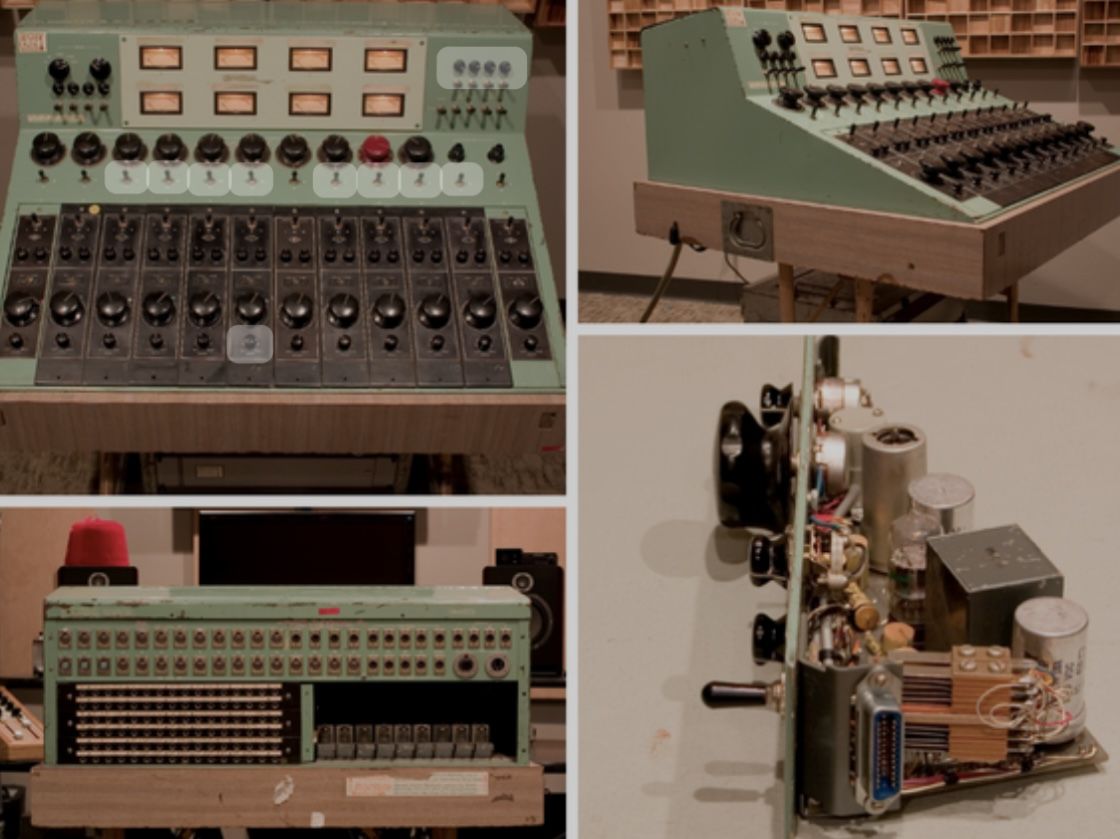Bill Putnam Sr.
"The Father of Universal Audio"
Write your awesome label here.
Write your awesome label here.
Write your awesome label here.
Bill Putnam Sr. is a name that resonates deeply in the world of audio engineering and recording. His innovations and contributions have laid the groundwork for modern recording techniques and equipment. But how did this legendary figure get started on his journey of audio inventions? Let's delve into the early days of Bill Putnam and explore how he became a trailblazer in the audio industry.
Early Fascination with Sound
Born in 1920 in Danville, Illinois, Bill Putnam developed an early interest in electronics and sound. His fascination was nurtured by his father, who was an amateur radio operator. This exposure to radio technology at a young age sparked Putnam's curiosity about how sound could be manipulated and improved.
During his teenage years, Putnam began building his own radios and experimenting with recording equipment. His passion for audio technology continued to grow, leading him to pursue formal education in electronics. He attended the University of Illinois, where he honed his skills and deepened his understanding of sound engineering.
The Birth of Universal Recording
After serving in the Army Air Corps during World War II, Putnam moved to Chicago and founded Universal Recording in 1946. This studio quickly gained a reputation for its superior sound quality and innovative recording techniques. Putnam's relentless pursuit of audio perfection led him to experiment with microphone placement, room acoustics, and new recording methods.
One of Putnam's early breakthroughs was the development of the first use of artificial reverberation in a recording. He achieved this by using an echo chamber, which added a sense of space and depth to recordings. This innovation set Universal Recording apart and attracted many high-profile clients, including Duke Ellington, Count Basie, and Nat King Cole.
An Acoustics Pioneer
Write your awesome label here.
Write your awesome label here.
Write your awesome label here.
Bill Putnam’s approach to studio design was revolutionary. He recognized that the acoustics of a recording environment were just as critical as the equipment used. At Universal Recording Corporation in Chicago, which he founded in 1946, Putnam introduced innovative acoustic treatments that drastically improved recording quality.
One of Putnam’s most notable achievements was the construction of United Western Recorders studio in Los Angeles in the late 1950s. This studio became a benchmark for acoustic design. Putnam meticulously crafted the rooms to have optimal sound reflection and absorption characteristics, creating an ideal recording environment. His use of floating floors, non-parallel walls, and custom-built acoustic panels were groundbreaking at the time and have since become standard in studio construction.
Today, the legacy of Putnam’s visionary designs continues to thrive at United Recording Studios, located at 6050 Sunset Boulevard, and EastWest Studios, formerly Cello Studios, at 6000 Sunset Boulevard. These studios are not just historical landmarks but also state-of-the-art recording facilities that embody Putnam's genius and innovative spirit.
United Recording Studios, owned by Hudson Pacific Properties, has preserved the exceptional acoustics that Putnam originally designed. This studio has remained a premier destination for artists and producers who seek unparalleled sound quality. The studio’s storied history includes recordings by legendary artists such as Frank Sinatra, Ray Charles, and The Mamas & The Papas. In recent years, it has continued to attract top-tier talent, including Adele and John Mayer, maintaining its reputation as a site of musical excellence.
EastWest Studios, now owned by Doug Rogers, has been meticulously restored to honor Putnam's original designs while integrating cutting-edge technology. Rogers' dedication to preserving the studio’s historic integrity while updating its capabilities has made EastWest one of the most sought-after recording spaces in the world. The studio has been the birthplace of iconic recordings from artists such as The Beach Boys, Madonna, and Michael Jackson. It remains a beacon for contemporary artists and producers who appreciate its unique blend of vintage charm and modern sophistication.
Both studios stand as testaments to Bill Putnam’s groundbreaking contributions to the field of acoustic and sound engineering. His innovative techniques and meticulous attention to detail not only elevated the quality of recorded music but also set new standards for studio construction. The enduring success and iconic status of United Recording Studios and EastWest Studios are a direct result of Putnam’s genius, solidifying his place as a pivotal figure in the history of the recording industry.
Pioneering Audio Equipment
The 610 Preamp and Console
Putnam's ingenuity extended beyond recording techniques; he also designed and built some of the most iconic audio equipment of the 20th century. In 1957, he founded Universal Audio, where he developed the first modular audio console. This console, known as the 610, became a staple in recording studios worldwide and is still revered for its warm, rich sound.

The Legendary LA-2A
Another groundbreaking invention was the LA-2A leveling amplifier, introduced in the early 1960s. The LA-2A's optical compression technology provided a smooth, natural sound, making it a favorite among audio engineers. This piece of equipment remains a standard in the industry, used by countless artists and producers to this day.
Impact on the Music Industry
Putnam's contributions to audio engineering have had a lasting impact on the music industry. His innovative spirit and dedication to improving sound quality revolutionized the way music was recorded and produced. He not only advanced the technical aspects of recording but also influenced the creative processes of musicians and producers.Throughout his career, Putnam received numerous accolades for his work, including a Technical Grammy Award in 2000. His legacy lives on through Universal Audio, which continues to produce high-quality audio equipment inspired by his original designs.
Conclusion
Bill Putnam's journey from a curious young boy fascinated by sound to a pioneering audio engineer is a testament to his creativity, innovation, and passion. His early experiments and relentless pursuit of excellence laid the foundation for many of the recording techniques and equipment we take for granted today. As we listen to our favorite songs, it's worth remembering the man whose inventions helped shape the sound of modern music.


